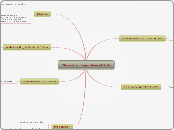Chemistry: Preparation of Salts
Acids Reacting With Carbonates
Acid + Carbonate --> Salt + Carbon Dioxide + Water
2HNO3 + Na2CO3 ---> 2NaNO3 + CO2 + H2O
H2SO4 + CaCO3 ---> CaSO4 + CO2 + H2O
2HCl + CaCO3 ---> CaCl2 + CO2 + H2O
Acids Reacting With Metals
EXAMPLES:
Acid + Metal --> Metal Salt + Hydrogen
H2SO4 + Mg ---> MgSO4 + H2
2HCl + Ca → CaCl2 + H2
Titration
Used when acid is soluble and if the substance being added to the acid is soluble.
Mix two aqueous solutions of
known volume together (for complete
reaction) to form the soluble salt.
Usually between an acid and a base
HCl(aq) + NaOH(aq) → NaCl(aq) + H2O(l)
Titrate acid & base (with indicator)
Determine exact quantities that will completely
neutralise the acid & alkali.
Titrate acid & base again (without indicator)
Salt formed can then be crystallised out in pure
form.
Acids Reacting With Metal Oxides
Acid + Metal Oxide --> Salt + Water
3HCl + Fe2O3 ---> FeCl3 + 3H2O
H2SO4 + CuO ---> CuSO4 + H2O
Acids Reacting With Bases
Acid + Bases --> Salt and Water
HCl + NaOH ---> NaCl + H2O
H2SO4 + 2KOH ---> K2SO4 + 2H2O
CH3COOH + NaOH ---> NaOOCCH3 + H2O
2HNO3 + Ca(OH)2 ---> Ca(NO3)2 + 2H2O
Precipitation
Use when salt is insoluble.
Mix two aqueous solutions together to form the insoluble salt.
2HCl + CaCO3 ---> CaCl2 + CO2 + H2O
